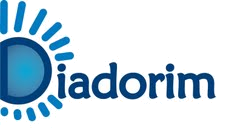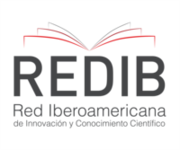O professor reflexivo e a educação pela pesquisa: olhares a uma prática com os alunos do Curso Técnico de Edificações
DOI:
https://doi.org/10.35819/tear.v2.n1.a1788Resumo
Resumo: Este artigo tem como objetivo descrever um breve histórico sobre diferentes tendências pedagógicas da educação no Brasil e debater a relação entre esses modelos e a busca da formação do conhecimento, através da iniciação da pesquisa, usando, para isso, uma experiência realizada numa disciplina do Curso Técnico de Edificações do Instituto Federal de Educação, Ciência e Tecnologia Sul-Riograndense. O estudo parte do pressuposto de que é preciso apreender com rapidez, em um mundo frenético, onde o ensino necessita de múltiplos contextos. “Roubemos”, então, parte de uma conversa deleuziana, na qual aprender é pensar, e do entendimento de que o professor reflexivo é o que procura desencadear, arrolar e romper o pensamento. Frente à ruptura feita pela tentativa de inovação em sala de aula, o paradigma dominante aqui se desconstrói, necessitando novas conexões para seguir. Assim, esta pesquisa parte da narração de uma nova prática, em que a inovação demonstra que o interesse dos estudantes é proporcional à curiosidade que a disciplina ou as atividades podem propiciar. A pesquisa desvincula-se do apenas ir para o laboratório de materiais de construção e realizar análises hipotéticas. Aqui, altera-se e amplia-se com o estímulo da vontade dos estudantes em analisar um produto que eles mesmos criaram. Desse modo, os estudantes são provocados a produzir, na forma de um texto científico, o conteúdo abordado, tendo a possibilidade de introdução na iniciação científica e de perdurar nela durante o semestre inteiro. O resultado é um banner, simulando a exposição em um congresso.
Palavras-chaves: Inovação. Ensino Técnico. Iniciação Científica. Professor reflexivo.
THE REFLECTIVE TEACHER AND EDUCATION BY RESEARCH: PERSPECTIVES OF A PRACTICE WITH STUDENTS OF THE BUILDING TECHNICAL COURSE
Abstract: This article aims to describe a brief history of the different pedagogical trends of education in Brazil and discuss the relations between these models and the pursuit of knowledge formation through the initiation of research, by using it for an experiment conducted in the discipline of Building Technical Course of Federal Institute of Education, Science and Technology Sul-Rio-Grandense. The study assumes that we need to grasp quickly, in a frantic world, where teaching requires multiple contexts. We pick part of a conversation from Deleuze, by whom learning is thinking, and the understanding that the reflective teacher is looking trigger, roll over and break the thought. Face to break made by attempt of innovation in the classroom, the dominant paradigm here is deconstructed and need new connections. Thus, this research is the narration of a new practice, where innovation shows that student interest is proportional to the curiosity that the subject or the activities can provide. The research is disassociated of the only go to the lab of building materials and perform what if analysis here alters and expands on the stimulus of the will of the students in analyzing a product that they themselves created. Therefore, students are provoked to produce a scientific text about the studied subject, and they are given the opportunity of experiencing the undergraduate research and continuing it during the semester. The result is a banner, simulating an exposure in a conference.
Keywords: Innovation. Techinical Education. Initiation to research. Reflective Teacher.
Downloads
Downloads
Publicado
Como Citar
Edição
Seção
Licença
Autores que publicam nesta revista concordam com os seguintes termos:
a. Autores mantêm os direitos autorais e concedem à revista o direito de primeira publicação, com o trabalho simultaneamente licenciado sob a Licença Creative Commons, que permite o compartilhamento do trabalho com reconhecimento da autoria e publicação inicial nesta revista a partir dos critérios abaixo:
CC BY-NC – Uso Não Comercial (NC): Os licenciados podem copiar, distribuir, exibir e executar a obra e realizar trabalhos derivados dela, desde que sejam para fins não comerciais .
b. Autores têm autorização para assumir contratos adicionais separadamente, para distribuição não exclusiva da versão do trabalho publicada nesta revista (ex.: publicar em repositório institucional ou como capítulo de livro), com reconhecimento de autoria e publicação inicial nesta revista.
c. Autores têm permissão e são estimulados a publicar e distribuir seu trabalho online (ex.: em repositórios institucionais ou na sua página pessoal) a qualquer ponto antes ou durante o processo editorial, já que isso pode gerar alterações produtivas, bem como aumentar o impacto e a citação do trabalho publicado.













